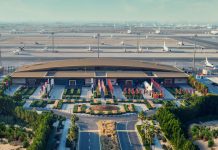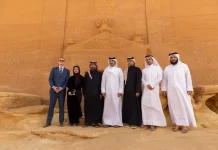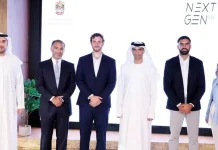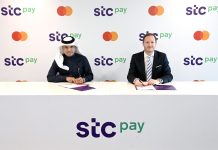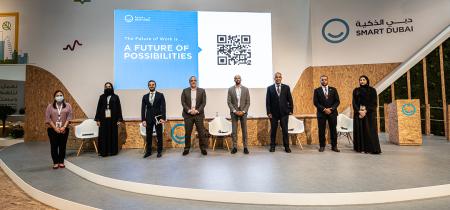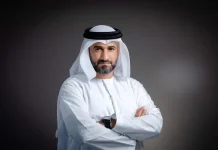Smart Dubai has released the ‘Future of Work’ report at GITEX Technology Week 2020 – a study that explores future possibilities of work; the potential developments expected to transform the nature of jobs; the mindset shifts that are driving these possibilities; as well as the evolving structural changes that are redefining the human-workplace dynamic.
GITEX Technology Week is holding its 40th edition at the Dubai World Trade Centre from December 6-10, 2020, where Smart Dubai’s pavilion, themed ‘Inspiring New Realities’, brings together 20 government entities to showcase advanced solutions being built by Dubai Government to accelerate the city’s digital transformation.
His Excellency Abdullah Ali bin Zayed Al Falasi, Director General of the Dubai Government Human Resources Department (DGHR), asserted Dubai’s readiness to tackle the challenges and rapid developments taking place around the world, whether due to the Fourth Industrial Revolution or the COVID-19 pandemic.
“Institutions in Dubai played a great role in forecasting the future…the Dubai Future Foundation carried out studies and research and came up with results that were forwarded to decision-makers,” H.E. Al Falasi said. “The DGHR also conducted studies and research, organized workshops, launched programs to anticipate the future of jobs in the medium and long term, and developed plans and strategies to deal with the evolving labor market. Meanwhile, Smart Dubai played an important and distinct role with its ‘Future of Work’ report.”
The DGHR Director General explained that the rapid developments resulting from AI make it imperative for everyone to focus on education and expand its scope. “There must be a system to provide opportunities for the acquisition and development of skills; authorities should also support the self-employment economy, which has grown significantly thanks to access to the Internet,” H.E. noted, citing the ‘Khbrati’ platform for self-employment that DGHR launched to allow UAE citizens to highlight their skills, talents, and experience to find appropriate job opportunities.
For his part, H.E. Younus Al Nasser, Assistant Director General of Smart Dubai, and CEO of the Dubai Data Establishment, said: “Smart Dubai has been entrusted with a mission to spearhead and expand Dubai’s digital transformation, and lead the emirate’s efforts to embrace promising and advanced new technologies to build a pioneering, full-fledged smart city. Our team is at the fore of the emirate’s efforts to forecast and shape the future today. We are the government entity working to establish Dubai as the smartest and happiest city on Earth, and with that in mind, we are particularly keen on exploring what the future labor market will look like.”
“In the ‘Future of Work’ report, Smart Dubai explores the challenges and opportunities that the Fourth Industrial Revolution brings to the employment market, offering pertinent data and eye-opening insight for all decision-makers and stakeholders involved,” H.E. Al Nasser added. “The Smart Dubai team brings its extensive expertise in exploring advanced technologies and their effects on various aspects of people’s lives. Focusing our efforts on analyzing and forecasting the future of work in light of these technologies offers us insight into the future labor market, which affects all other city sectors.”
The ‘Future of Work’ report covers five main areas: the evolution of work, the future possibilities of work, the future mindset of work, and the future ways of work, in addition to considerations and questions about the future of work.
The report begins with an overview of past industrial revolutions and their effect on work and humanity as a whole. From the First Industrial Revolution, which began towards the end of the 18th century, and was marked by the advent of the steam engine and mechanical manufacturing, and all the way to the Fourth Industrial Revolution we are witnessing today, which has been marked by unprecedented breakthroughs in cyber-physical systems and the Internet of Things (IoT). Each of those revolutions leading up to the 4th were faced with fear and resistance in the beginning but were welcomed eventually as they had propelled the human race forward.
The ‘Future of Work’ report explores how the internet has allowed talented individuals (musicians, actors, artists, etc.) to no longer be dependent on middlemen or the preferences of production houses, distribution companies, or networks. It takes the example of Spotify as a prominent case study in that regard. The music streaming platform has allowed independent artists to generate USD600 million in revenue in 2018.


